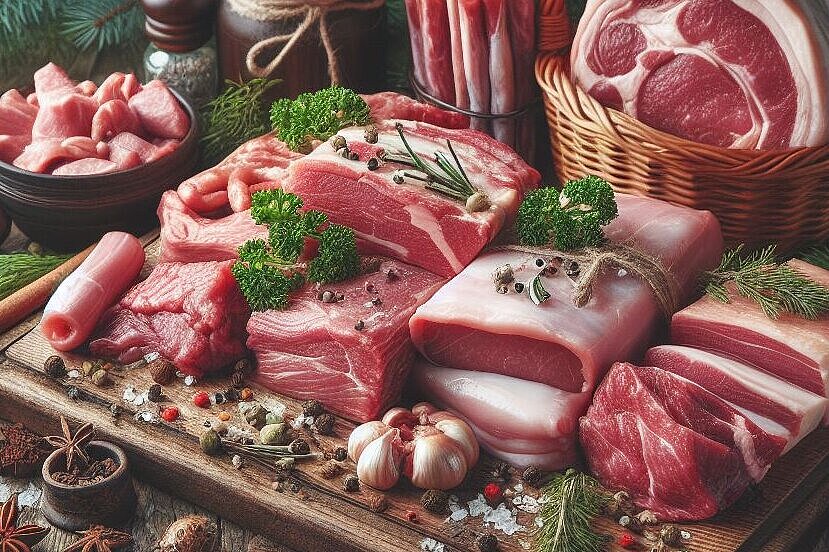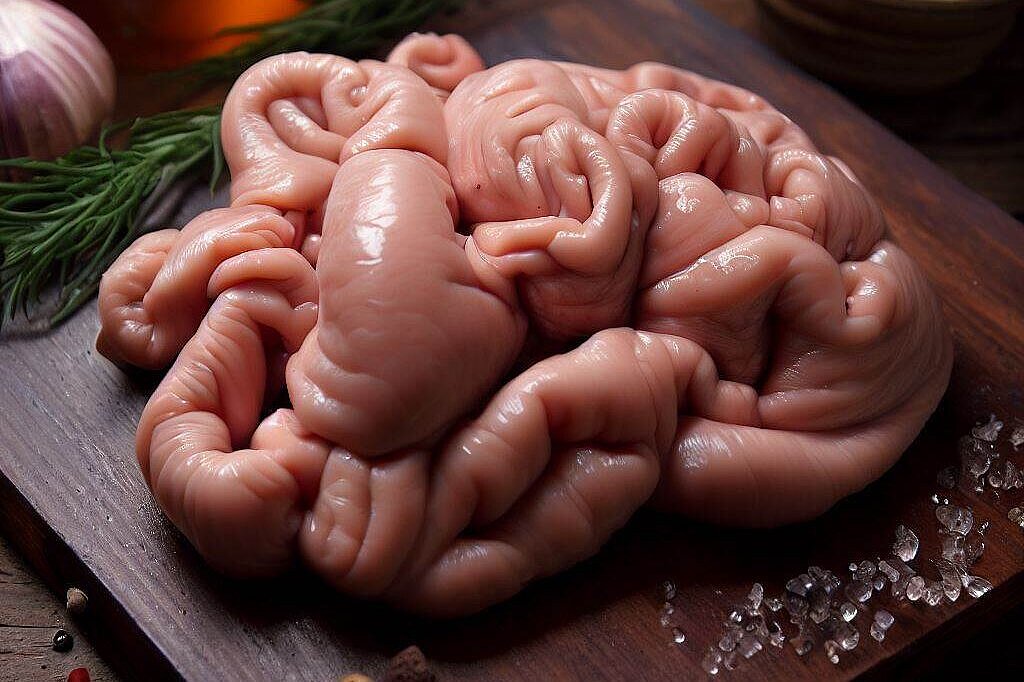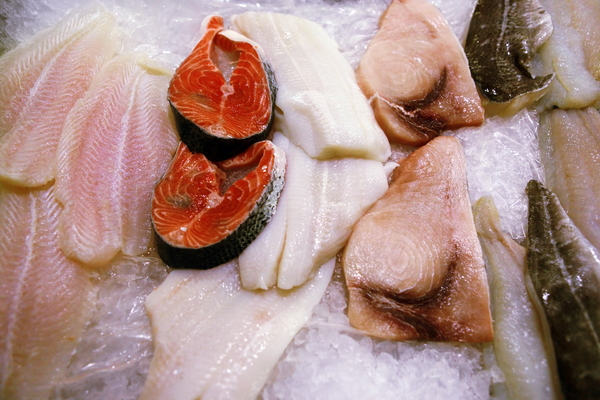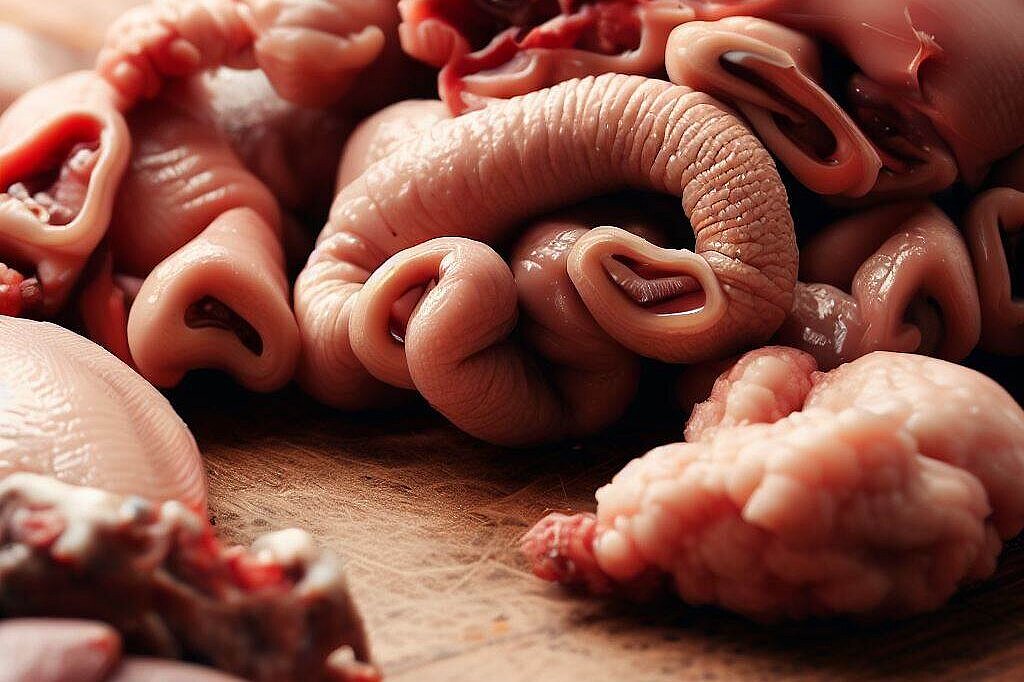Meat and offal
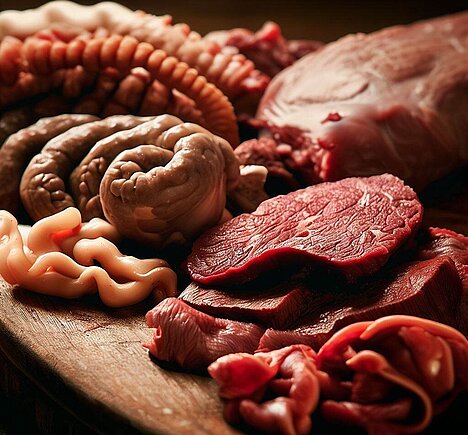
What are meat and offal?
Meat is the collective term for the muscle meat of animals that is suitable for consumption. It can come from different animal species, for example beef, pork, poultry, lamb or game. Meat contains high-quality protein, which is important for building and maintaining your dog's muscles. It also provides essential fatty acids which, among other things, promote healthy skin and coat.
Offal are the internal organs of animals such as the liver, kidneys, heart and lungs. They are considered to be particularly nutritious and contain many vitamins (especially vitamin A and B vitamins) and minerals (especially iron, zinc and copper), which are important for various metabolic processes in your dog. Offal is often cheaper than muscle meat and can be a good addition to a meat diet.
What are the benefits of meat and offal for dogs?
Meat and offal have many benefits for dogs. They are
- species-appropriate: dogs are carnivores by nature and have a high requirement for animal protein and fat. Meat and offal correspond to the dog's natural prey and are therefore optimally adapted to its digestion and nutritional requirements.
- Tasty: Most dogs love meat and offal and eat them with great appetite. They provide variety in the bowl and can also encourage picky dogs to eat them.
- Healthy: Meat and offal support a dog's health in many ways. They strengthen the immune system, promote blood formation, support liver and kidney function, improve skin and coat quality, maintain the muscles and prevent deficiency symptoms.
What are the disadvantages of meat and offal for dogs?
Meat and offal also have some disadvantages for dogs. They are
- not always well tolerated: some dogs are sensitive to certain types of meat or offal or cannot tolerate them at all. This can lead to digestive problems such as diarrhea, vomiting or flatulence. Some dogs can also have an allergic reaction to certain types of meat or offal. This can manifest itself as a skin rash, itching or ear infections.
- Not always hygienic: Meat and offal can be contaminated with bacteria or parasites that can harm the dog. This applies in particular to raw meat and offal that has not been sufficiently chilled or frozen. To minimize the risk of infection, you should therefore only buy fresh or frozen meat and offal from trustworthy sources and heat or freeze it thoroughly before feeding it to your dog.
- Not always balanced: Meat and offal alone are not enough to provide your dog with optimal nutrition. They need to be supplemented with other components such as vegetables, fruit, cereals or feed supplements.
Meat and offal are important components of a balanced diet for dogs, as they provide many essential nutrients and meet the natural needs of dogs. However, they should be fed carefully and it is important to consider your dog's individual needs and preferences.
If you notice any signs of hypersensitivity or poisoning in your dog, you should see your vet immediately. We are not a substitute for a vet, but we try to be as accurate as possible. Every dog reacts differently and we recommend you get a second opinion or consult your vet if in doubt.
Stay healthy and take good care of your four-legged friend!😊
Similar to Meat and offal
Meat is the collective term for the muscle tissue of animals that is used as food. Meat can come from different animal species, such as beef, pork, poultry, lamb or game. Depending on the animal...
Poultry giblets are the internal organs of poultry such as chickens, turkeys or ducks. These include, for example, the heart, liver, stomach, kidneys and lungs. These organs have a high nutritional...
Fish by-products are all parts of the fish that are not intended for human consumption. These include, for example, heads, bones, fins, offal or skin. They are processed into fish meal or fish oil...
Chicken giblets are the internal organs of chickens that are not suitable for human consumption. These include, for example, the heart, liver, stomach, kidneys and spleen. These organs contain many...
